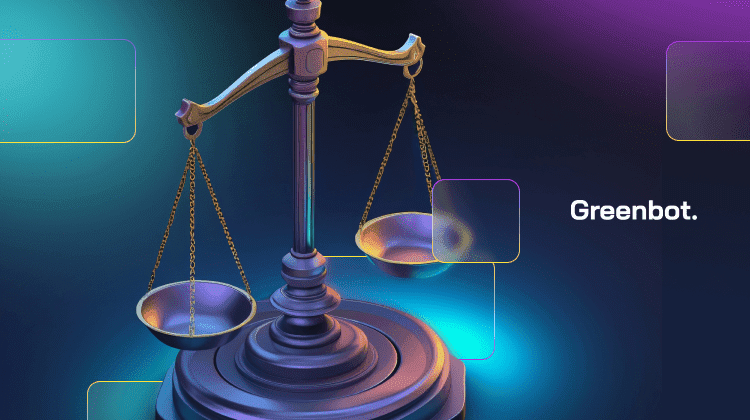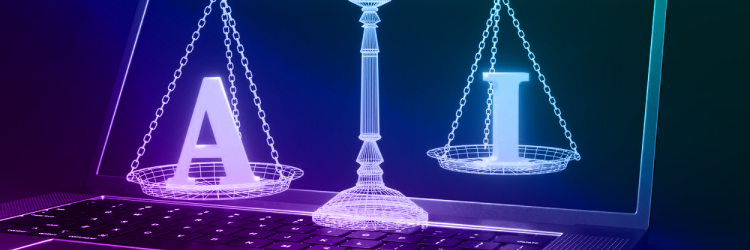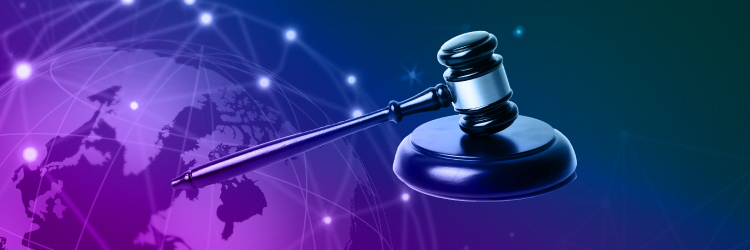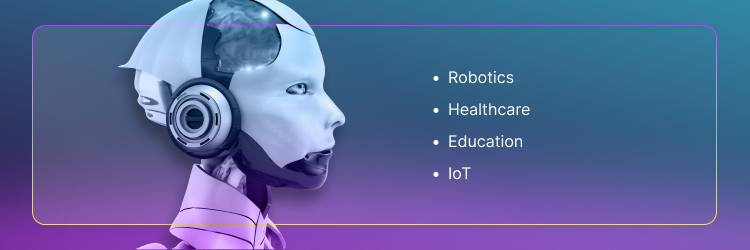
Generative AI tools like ChatGPT are groundbreaking, but AI goes far beyond this. It’s used in healthcare, finance, education, transportation, and more, and new applications are emerging every day.
However, AI systems come with risks, like threats to privacy, lack of transparency, and environmental impact. This is why AI regulations are vital as they guide the safe development and use of these technologies.
In this article, we’ll explore AI regulations and why they matter.
What Are AI Regulations, and Why Do They Matter?

AI regulations are rules set by authorities to ensure AI is developed and used safely across different AI applications.
Cases of machine based systems misuse show why these rules are needed. For example, Air Canada’s virtual assistant mishandled a passenger issue. Deepfakes featuring celebrities like Taylor Swift or used in scams, such as one targeting a company’s Hong Kong office, highlight the risks.
AI regulations protect user rights like privacy and security while encouraging fair innovation. They also require trustworthy AI systems to be transparent, understandable, and accountable, building user trust.
As AI shapes industries like healthcare and transportation, AI regulations are critical. They prevent risks like data breaches, biased decisions, and harmful applications. In sensitive fields, these missteps could cost lives. At the same time, AI regulations must support innovation and guide AI growth to align with society’s values.
The State of AI Regulation in 2024
AI regulation has advanced worldwide, with many countries introducing frameworks to ensure responsible use of artificial intelligence systems. Leading this effort is the European Union’s AI Act, the first comprehensive AI regulatory framework. It classifies AI systems by risk levels, with rules tailored to each category.
The unacceptable risk AI class includes systems that violate EU rights and values. These are strictly banned. High-risk AI systems, like those in critical infrastructure or with health and safety risks, demand conformity assessments, transparency and monitoring after launch.
Generative AI tools like chatbots and deepfake technology are not classified as high risk. However, the Act requires users to know when they interact with AI or view AI-generated content. Minimal or no-risk AI systems, like spam filters, currently face no specific regulations under the Act.
The National Institute of Standards and Technology (NIST) introduced the AI Risk Management Framework in the US. Unlike the EU AI Act, this framework is voluntary. It focuses on fairness, security, and transparency to promote trustworthy AI systems. Several AI bills are also being passed to regulate AI use.
As more nations adopt similar measures, the push for regulated AI systems capabilities will continue to grow.
AI Regulations and Their Impact on Global Collaboration

Differences in AI regulations, like the EU AI Act and the NIST, create challenges for global collaboration. Each country has its own rules, making it hard for businesses and developers to meet different compliance standards.
These differences can slow down AI research and development. Companies may face delays, higher costs, or struggles to align their products with multiple regulations. This can limit access to global markets.
To solve this, standardized frameworks are needed. Common standards would ensure AI systems, particularly those operating in real or virtual environments, follow shared ethical principles. This would make global collaboration easier and support responsible AI use and innovation.
Why Tech Enthusiasts Should Care About AI Regulation
AI regulation matters because it shapes how AI evolves, works, and is used. For users, these rules protect data privacy and prevent misuse. They give users more control over their digital footprint. They also limit AI’s ability to predict personal aspects related to behavior or preferences, making AI interactions safer.
For developers, AI regulations offer clear guidelines for building ethical and transparent systems. Regulations like the EU AI Act require developers to explain how their models make decisions. This alignment with AI ethics fosters trust, enabling users to understand and challenge AI outcomes when necessary.
Tech enthusiasts should care about AI regulations because they shape the future of innovation. Clear rules promote responsible development, focusing on safety, fairness, and ethical principles.
The Innovation vs. Regulation Debate
OpenAI CEO Sam Altman testified in a Senate hearing last year about the need for AI standards. He stressed the importance of slowing down AI innovations to avoid harm. These efforts aim to create trustworthy AI systems. However, they could also slow companies from achieving breakthroughs.
Tech giants like Google and Microsoft are leading in developing general purpose AI models while facing regulatory pressure. Laws like the EU AI Act require them to ensure their systems are safe, ethical, and transparent. At the same time, they must stay competitive and form a long-term AI strategy to continue driving progress.
To succeed, AI regulations need balance. They should protect users and society while allowing innovation to grow. Like science and technology guidelines, flexible policies can ensure safety without stifling progress.
Industries Most Affected by AI Regulations
AI regulations are impacting industries in big ways. The EU AI Act sets rules based on the risk level of AI applications and varies by industry. Here’s how five industries are most affected:
- Healthcare: AI helps improve diagnoses and treatment plans. However, strict rules are needed to protect patient data and ensure tools are accurate, reliable, and free from bias. These safeguards are critical for handling sensitive health information.
- Autonomous Vehicles: Self-driving cars are an exciting AI innovation, but safety is a big concern. Regulations make sure these vehicles are tested, safe, and reliable. This builds public trust and helps prevent accidents.
- Finance: AI is key in financial services, such as fraud detection and lending. Rules ensure algorithms are fair and transparent. They also prevent bias in decision-making and protect against fraud.
- Retail: AI powers many automated systems for personalized shopping, changing how people shop. But using consumer data raises privacy concerns. Regulations build on existing consumer protection laws to ensure businesses don’t misuse personal information.
- Social Media: AI moderates content and targets ads, but this can lead to misinformation and privacy issues. Rules hold platforms accountable for content and ensure user data isn’t exploited.
How AI Regulations Influence the Future of Tech

AI regulations are shaping how technology grows. They impact industries like robotics, healthcare, education, and IoT by ensuring safe systems. These rules help developers build trust and create AI that benefits society. For example, privacy laws and transparency rules push for fair and accountable AI models.
In robotics, regulations ensure the safe use of self-driving cars and medical robots. They prevent biased decisions or unsafe actions, which builds public trust. Stricter data rules benefit IoT devices, which depend on AI. These laws reduce security risks and stop the misuse of user data.
Regulations also present challenges for developers. Complex rules can slow progress, but they also promote fairness and guide ethical innovation. These standards pave the way for a responsible and sustainable future in AI.
Practical Guide: How Companies Can Stay Compliant
Staying compliant with AI regulations is essential for businesses to operate responsibly and avoid legal issues. Here are four steps to help:
- Build a Compliance Team: Create a team of legal, ethical, and technical experts. Their job is to track AI laws like the EU AI Act, manage risks, update company policies, and train employees to ensure compliance.
- Use Explainable AI: Choose AI systems that are transparent in their decision-making. Explainable AI builds trust and helps meet rules about fairness and accountability.
- Conduct Regular Audits: Review your AI tools often to catch problems like biased data or security risks. Regular audits help you meet standards, avoid penalties, and maintain trust.
- Work with Regulators: Collaborate with lawmakers to stay informed about rule changes. Sharing insights can also position your company as a leader in creating fair AI policies.
What Consumers Should Know About AI Regulations
AI regulations protect consumers by making systems more transparent. Laws like the EU AI Act let users understand and challenge decisions, such as loan denials. They also enforce privacy rules to protect personal data and digital rights.
For consumers, these laws create safer AI interactions. They aim to remove bias, prevent data misuse, and ensure fairness.
Ethical AI: More Than Just Compliance
AI laws tackle issues like bias and data privacy, but regulations alone can’t solve every ethical problem. AI companies must go beyond compliance and make ethics the foundation of development. This means respecting privacy, individual rights, fairness, and avoiding manipulation.
Removing bias and ensuring inclusivity in AI systems is crucial. These steps build trust and create technology that serves everyone. Ethical AI also benefits businesses. People prefer fair technology, and companies prioritizing ethics gain a competitive edge. This approach strengthens consumer trust and lays the groundwork for future success.
Greenbot’s Take on the Future of AI Regulation
Greenbot is committed to advancing cutting-edge AI solutions while promoting responsible practices. We understand that regulations are not merely necessary—they are vital for ensuring ethical and safe use of AI by developers and users alike.
Though frameworks and bills have begun addressing AI oversight, more robust laws are needed to tackle issues like data privacy, transparency, bias, and ethical decision-making. These regulations will form the backbone of responsible AI development.
A key challenge is the speed of AI advancements outpacing regulatory updates. Policymakers must adopt flexible, iterative approaches to stay current with technology’s rapid evolution.
Global cooperation will also be vital. International standards for AI safety and fairness, combined with localized flexibility, can balance innovation with accountability. As AI extends into areas like autonomous vehicles and healthcare, adaptable regulations will become increasingly crucial.
For businesses, embracing transparency and fairness now is a competitive advantage. Those who prioritize responsible AI practices will not only comply with future laws but also build trust and establish leadership in the industry.
FAQs About AI Regulations
How do AI regulations affect startups?
AI regulations can be challenging for startups due to compliance complexity and costs. However, they level the playing field by ensuring all companies follow ethical rules. Startups must manage their input data carefully to avoid bias and follow laws like the California Consumer Privacy Act. Using machine learning effectively ensures safe and fair AI development. By focusing on fairness and transparency, startups can build user trust and stand out.
Are AI regulations stifling innovation?
Regulations aim to encourage responsible AI, not block innovation. While compliance may slow progress, these rules ensure powerful AI models are built ethically. This helps unlock the myriad benefits of AI while reducing risks. Over time, these regulations create a safer and more sustainable tech environment.
What role do governments play in AI laws?
Governments shape AI laws by setting rules for safety and fairness. They work with experts, industries, and civil society groups to create effective frameworks. Agencies like the federal government oversee the use of AI in sensitive areas, such as healthcare and national security. These efforts protect users and ensure ethical AI systems.
How can businesses prepare for upcoming AI regulations?
Businesses must stay informed about changing regulations. Key steps include: creating a compliance team, following ethical AI practices, and auditing their systems. Companies developing AI enabled products should also work with government agencies to meet regulatory standards. Following science and technology policy guidelines ensures businesses stay compliant and competitive.
What are the penalties for non-compliance?
Non-compliance can lead to fines, lawsuits, and restrictions on AI use. For example, breaking the California Consumer Privacy Act could mean hefty penalties. Some companies may also face reputational harm, losing user trust. Staying compliant helps avoid these risks and builds long-term credibility.
How do AI regulations address real and virtual environments?
AI operates in real and virtual environments, like autonomous vehicles and online platforms. Regulations ensure these systems work safely and ethically. For example, they prevent misuse of AI in virtual settings, like deepfakes. They also ensure physical AI systems meet safety standards.
Why are safe and effective systems important in AI regulations?
Regulations demand safe and effective systems to protect users and promote trust. AI models must be transparent, reliable, and fair. This focus ensures that AI benefits everyone while minimizing risks.
Conclusion: Embracing Responsible AI Innovation
Artificial intelligence regulations are crucial for creating safe and ethical technology. They help AI developers build AI solutions that are transparent and fair. These rules reduce risks and encourage trust.
Policies like the science and technology policy protect users and promote ethical AI. Clear regulations also guide AI worldwide, fostering collaboration. They also address critical areas like healthcare and national security.
By adopting AI governance, businesses can create AI-enabled products that meet ethical standards. These efforts unlock AI’s myriad benefits while ensuring safety, trust, and long-term sustainability.






















